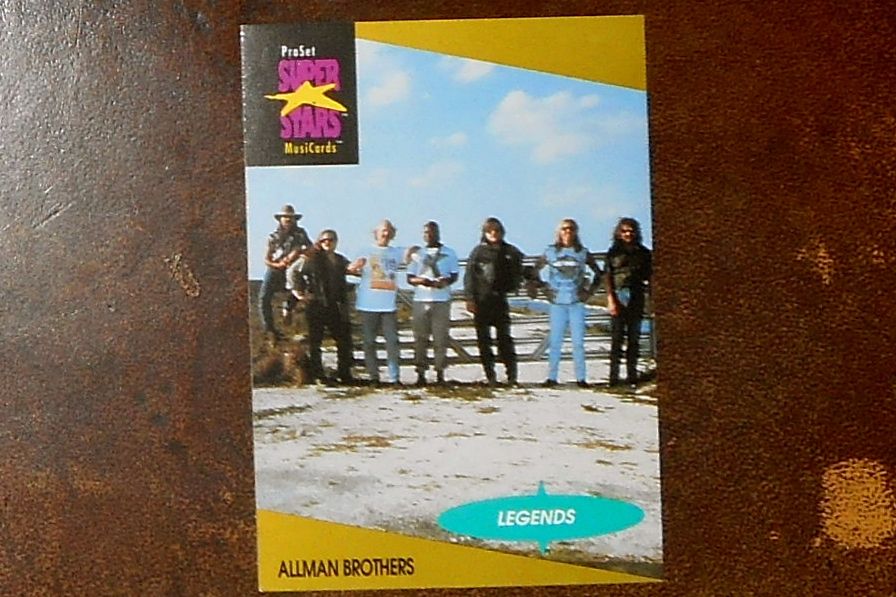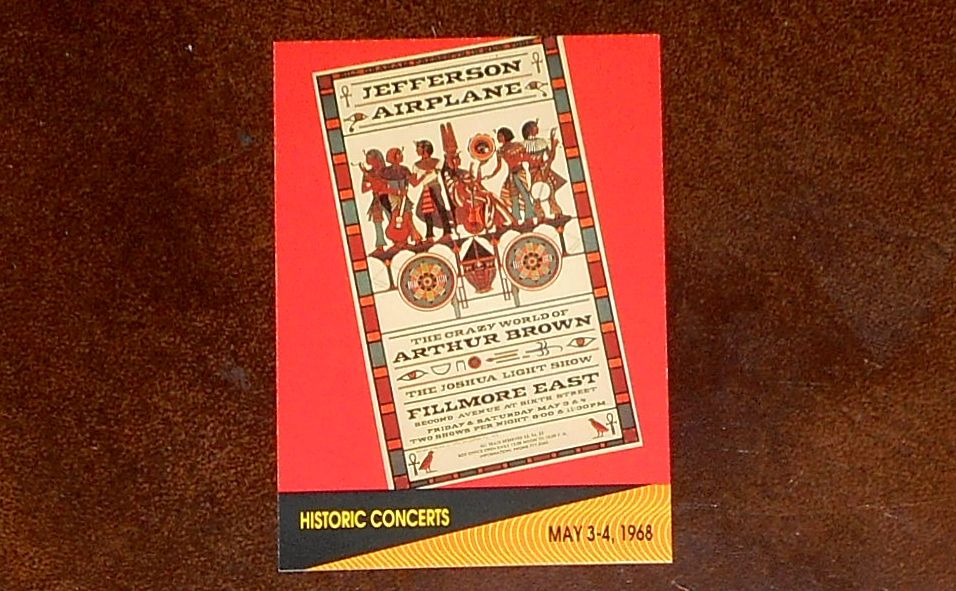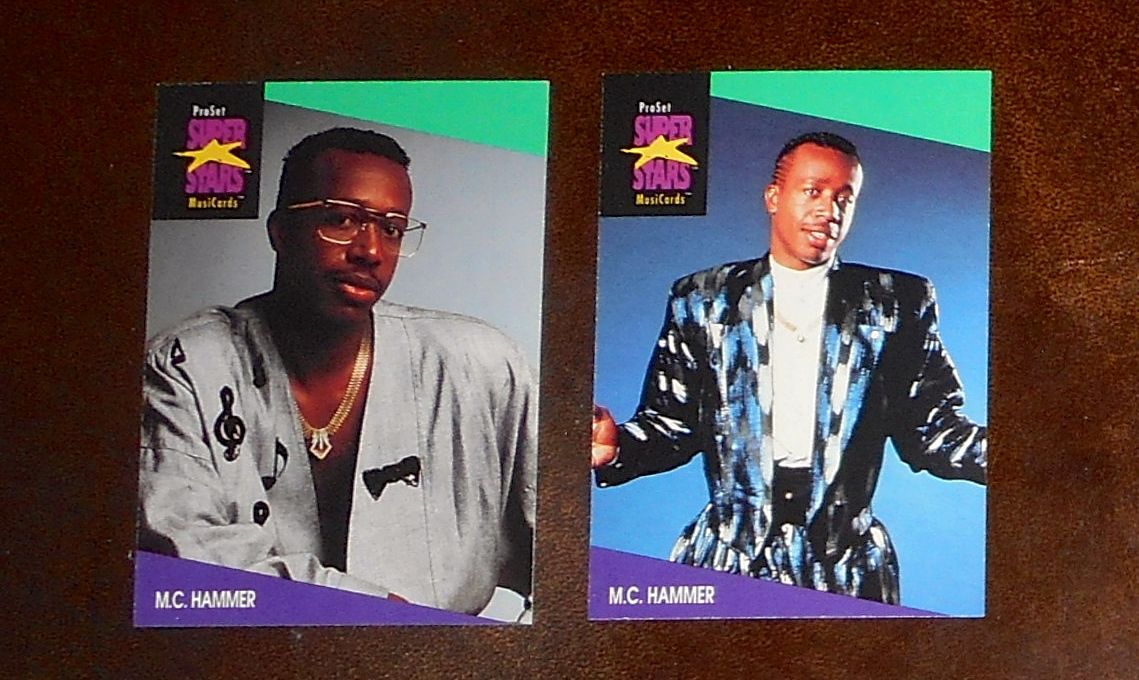Stacking The Deck with J Hacha De Zola
.jpg)
Stacking The Deck is a feature exclusive to Adam’s World where I
bring packs of 1991 Pro Set Superstars MusiCards to artists, and we
discuss who they find in each pack.
“I’m not a well known person,” New Jersey-based musician J Hacha De Zola says of himself.
If that’s the case, you may ask, how is it that he recently released a Greatest Hits album?
The man who describes his sound as “urban junkyard” explains the inspiration for the compilation, saying, “It was kind of an exercise of stepping back, and taking a look at what I’ve done, and trying to identify some of the purest, most representative moments of the past four records or so, four or five, and kind of just spilling it all down into this thing that now is known as the Greatest Hits.”
He continued, adding, “I prefer to think of it as my best moments. When I was going through my sister’s album collection I came across that John Denver Greatest Hits (album), and just the cover, the joy and jubilation in his face, I had to throw that on. I loved it, and it was kind of my introduction to John Denver’s music. By the same token I hoped that this Greatest Hits would be kind of an introduction to new listeners to my own music.”
J Hacha De Zola has an album of new music, titled East of Eden, due out June 11th, with the lead single being “Lost Space.”
I caught up with J Hacha De Zola via Zoom to open up some packs of MusiCards, and the artists we found sparked conversations about the influence of his four sisters on his musical education, his initial desire to emulate the Allman Brothers, and Jefferson Airplane, and why he feels complexity is the spice of life.

To me she’s at the top of the list. She was there during the whole beginning of the rhythm and blues thing, obviously the Ike Turner connection, and honestly, she way surpassed him in so many ways in terms of songwriting.
Everything about her, she was a force of nature. I’m sorry, she IS (a force of nature).
I love Tina Turner. I have a really personal connection with her because one of my older sisters, Elsa, who passed away, absolutely loved all things Tina Turner. My sister, she was a huge influence on me in terms of getting into this music thing, listening to vinyl records – Blondie, Tina Turner, the Bee Gees, all of that. So Tina Turner hits a very special place in my heart.
So your older sister was the one who really got you into music.
Yeah, big time. I have four older sisters. They all contributed, in a way, towards my musical education.
I consider myself a student of music, of all music. I never really shy away from anything. I’ve always felt that there’s always something to learn from every kind of style. I can be a snob, but that’s not how I was raised. I was raised to dig into everything. That’s one of the things that helped me develop as a songwriter, and as a musician, my experience with my older sister playing The Beatles for me, playing Blondie, playing disco, playing Tina Turner. That all had a really profound affect on me.
That’s a real music education, when it’s brought to you by people who love it.
They would dance around the room, and I was just a little kid. In a lot of ways they kind of helped raise me. I would just get lost with them in these records, and we would dance around the room, and me being a little kid, they would just swing me around the room.
Those are some of my fondest memories of childhood – getting into the magic of what music is. I had never experienced it like that before.
And there were no injuries from being swung around?
{laughs} Well, minor injuries.
There was never a moment where it was like, “Oh crap, we gotta get J to the hospital!”
Never that. No, but we got close.
What record was playing when you got close?
I believe Blondie. “One Way or Another.”

So many memories around the Allman Brothers. “Midnight Rider,” “Whipping Post,” I love all their stuff. Between Dickie Betts and Duane Allman – Duane Allman being the actual heart and soul of those early records, and of those albums – it just has a very special place in my heart.
When I was younger I spent a lot of time in the south – Georgia, and Northern Florida – and that kind of stuff was on the radio constantly, and it was kind of like I wanted to emulate some of that guitar playing, because I started as a guitar player. I never really had any interest in singing anything because I never really thought of myself as having a singing voice. I’m still not that comfortable with my singing voice, although with this new album (East of Eden) I wanted to make that the focus of it.
Every time I make a new record I find something that I’m uncomfortable with, or challenge myself in some way. With this new record I didn’t want to hide behind any instrumentation like I’ve done previously, and that was intentional, because I never thought of myself as a singer.
I’ve always been uncomfortable with my singing voice, and I wanted to do something with this record that would really truly challenge me. I felt the most appropriate thing to do was minimizing the number of instruments, and just using what’s effective, and not being a self-indulgent douchebag throwing the kitchen sink at this fuckin’ thing and peeling back the various layers to try to craft something. I went into the studio with a very clear idea.
Getting back to the Allmans, I learned how to play the blues from those guys, or at least they started me on the direction towards finding who the true blues masters are. The Allman Brothers were kind of emulating the old, great, Black bluesmen, the African influence on modern American music, and they were really among the first to bring that to the fore at that time, while kind of mixing a little country in there.
Arguably, I’d like to say that country music is hugely rooted in African music, particularly West African music, because if you listen to music from Ghana, it’s the blues.
The banjo was not an American instrument, it’s from West Africa.
So (the Allman Brothers) were like a breadcrumb on the trail to finding the true heart of that kind of music.
I think all music in America is immigrant music, or at least immigrant influenced in some way, because none of the instruments were made here.
Absolutely.
It’s not a surprise that all these forms of music were created in the places with the highest immigrant population – New York, New Orleans, etc.
Exactly, and that’s kind of the whole idea behind my, what I call “urban junkyard.” I feel like the sound that I’ve been trying to develop – I hope that doesn’t sound too douchey – has been a direct result of where I’m from – New Jersey / New York.
I can stick my head out the window and see the Empire State Building. There are all kinds of influences here, and I’ve made use of all of them, and not shied away from any particular style, or any particular culture, or anything like that.
With the lack of a better word, I steal from everything. I do it so unabashedly, but at the same time I recognize that a lot of these influences, and a lot of these sounds, they’re not my own, and I’ll be the first one to say it, but I’m happy to make use of it, and maybe mold it into something that feels uniquely me. I don’t know if I’ve accomplished that, but we’ll see.

Jorma Kaukonen, he’s the primary guitarist, that lick to “White Rabbit,” the opening lick, is something that was one of the first things I learned how to play on guitar, because nothing else sounded like that.
Grace Slick, arguably, and probably one of the most powerful vocalists for that time. She would make the hair stand up on your neck just with the power of her vocals alone. I love Grace Slick.
The two biggest musicians in that group that I absolutely love are Grace Slick, and Jorma Kaukonen, who was basically a virtuoso of the guitar. He embraced all kinds of influences, as well. You could hear a lot of Middle Eastern stuff in his playing. All kinds of things. I love that he pulled from all these different bags.
How do you feel about Jefferson Starship?
{laughs} We built this city!
You know what, fuck it, it’s a memorable tune for me.
I gotta be honest, I’m not as big of a fan (of Jefferson Starship), but I gotta give them props for … this is a band from the ‘60s, and here there are in the ‘80s still doing something. I feel like a lot of groups didn’t really survive that transition.
They also did “Nothing’s Gonna Stop Us Now,” the theme from the movie Mannequin.
Huge! You remember that movie?
Loved that movie. I’m still waiting for a mannequin to come to life.
You just aged yourself. {laughs}

I have kind of a love-hate relationship, or feelings, for John Lennon. He was, in a lot of ways, the dark Beatle, and I could relate to him in that sense. He had to be the counterbalance to Paul McCartney, who was just so fluffy, and happy go lucky, and all that other shit.
But let’s just put aside his songwriting prowess, and his vocal abilities, and all that other stuff, which was absolutely amazing, there’s the other side of him that wasn’t so great. Obviously, I don’t want to talk shit about the man, because he has my utmost respect and admiration, but he was perhaps a little flawed as a human being, despite all this “All You Need is Love” bullshit. Honestly, that song kind of irritates the shit out of me.
I love The Beatles, don’t get me wrong, but “All You Need is Love,” that just kind of minimizes the whole of human experience. All you need is love? That’s it? I find that a little irritating.
The whole human experience is this broad spectrum of all kinds of emotions, feelings, shit like that, just to minimize it all to all you need to do is love, that sounds like cultist crazy talk to me, and I’m not with that shit. I think it’s very important to accept this whole complexity of what it is to be a human being, alive, and breathing, trying to survive in this fucked up crazy world. It was suitable for the time, but ultimately I don’t agree with that kind of thinking.
You mentioned that life is complex. There’s a lot of complexity in your music. Is that the reflection of life’s complexity?
Absolutely. You hit it right on the head.
I think that living, and growing up, in a diverse city with all kinds of culture, and all kinds of variety, as opposed to growing up in a place where everybody’s the same – everybody thinks the same, acts the same – that’s where a lot of this diverse stuff is coming from. I’ve been exposed to a whole lot of different things because I live in a diverse city.
A lot of people are scared of that, scared of things not being the way they used to know, but I think there’s really strength in that because it makes you a more worldly person. You have an appreciation for other cultures, for other people, with the good or bad that comes with it. I think that just makes you a richer human being as a result.
That absolutely has a lot to do with the music I’ve been making for the last couple years.

I’m fascinated by a potential MC Hammer connection. Did you own parachute pants?
I absolutely did. Do you remember the Cavariccis? Remember the shoes, too, with like the metal tips on the front? I still love that shit. I rocked that shit, man.
It had to be like what, ‘90s, ’91? I was a middle schooler by then, and honestly that was the moment of MC Hammer, and I just remember, I’m gonna age myself here, I remember being in the eighth grade when that song came out.
The song is fun. It’s a pop song. It’s fun, it gets you moving. Am I really into this kind of music, specifically? No, but I have a lot of fond memories associated with it – first time kissing a girl, first time going to a dance, wearing my Cavariccis.
The eighth grade dance!
Yeah, man!
{laughs}
You gotta do the thing. Life.
For more J Hacha De Zola check out jhachadezola.com, stream his music on Bandcamp, and follow him on Facebook, Twitter, Instagram, and YouTube.

Comments